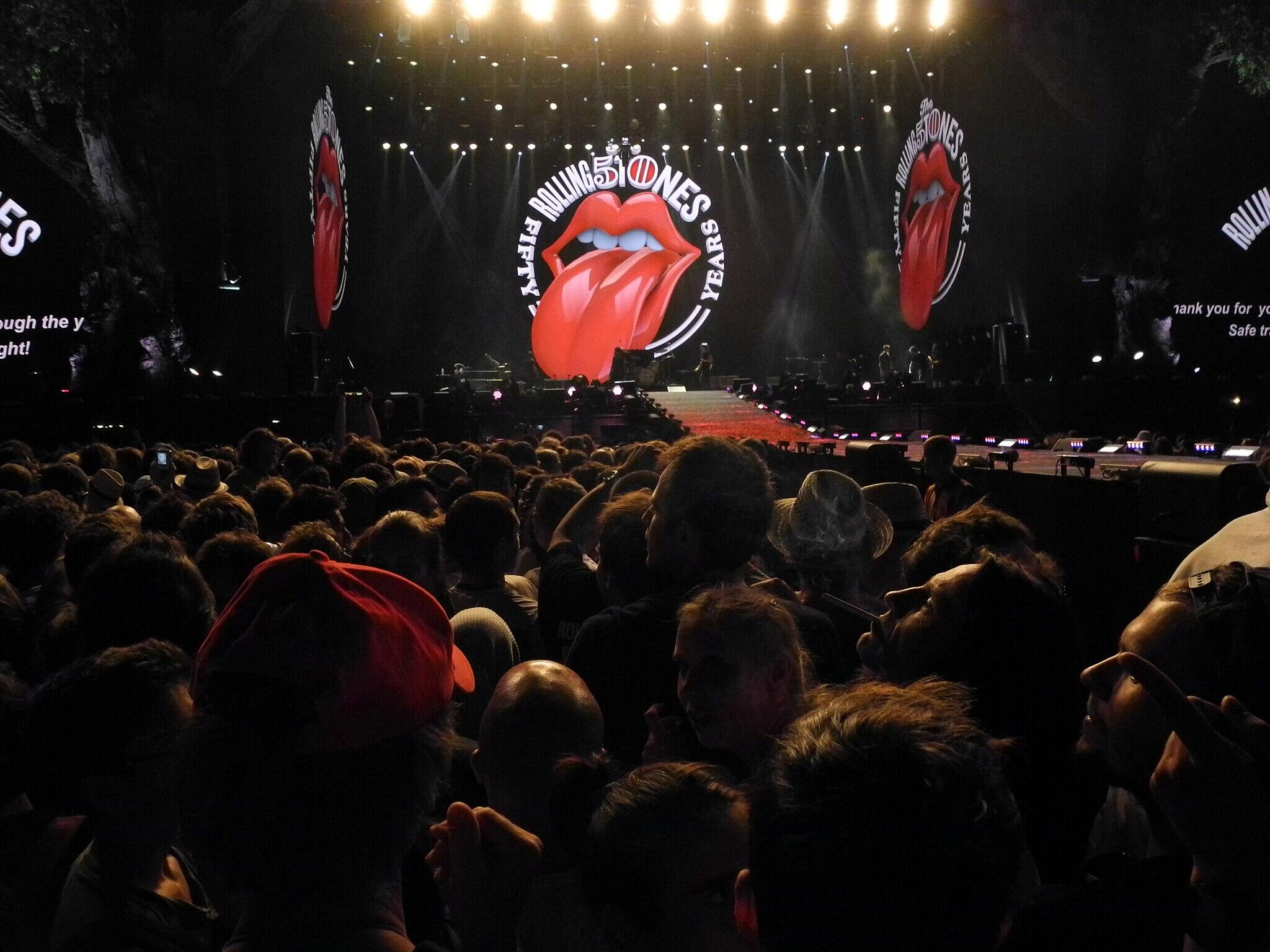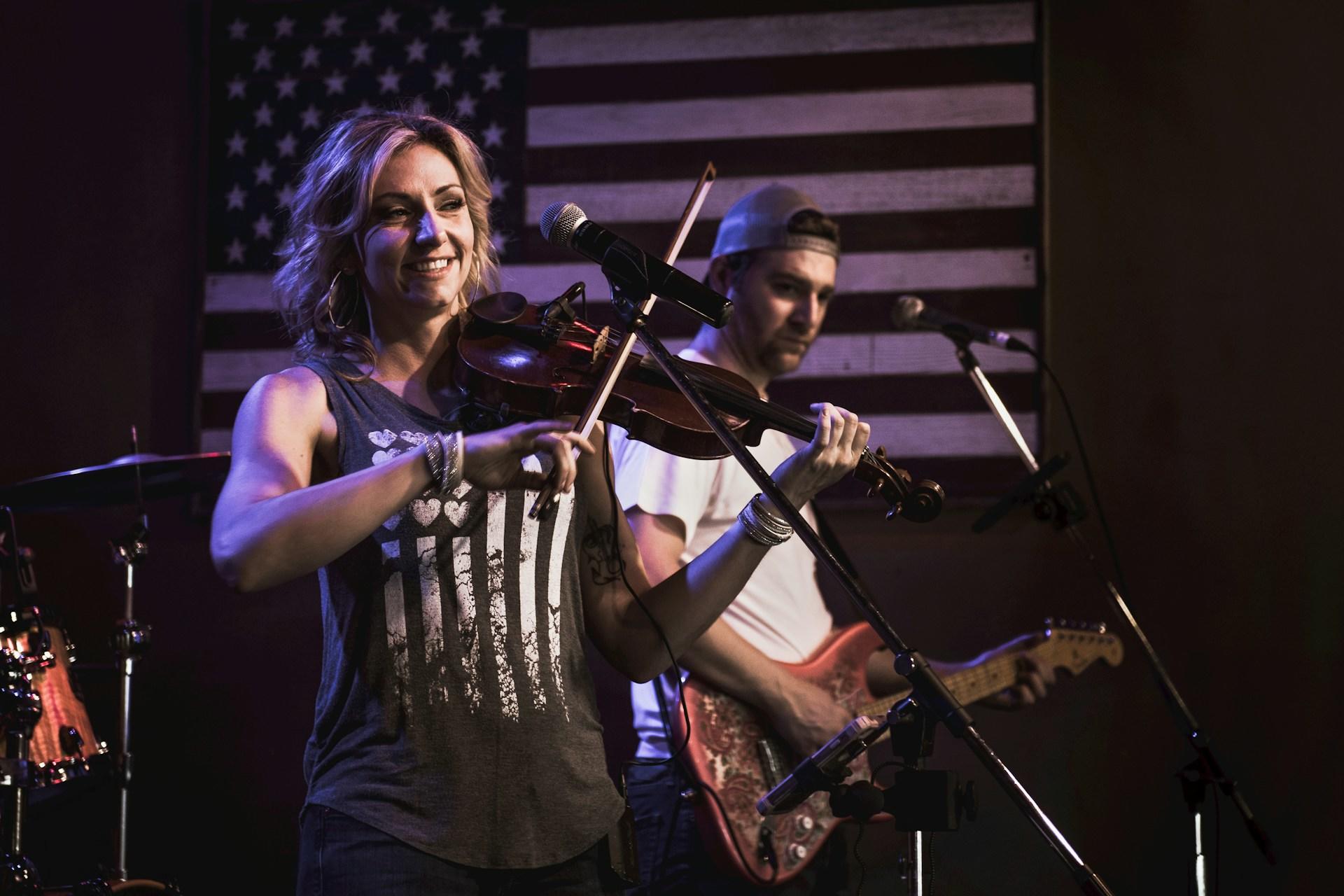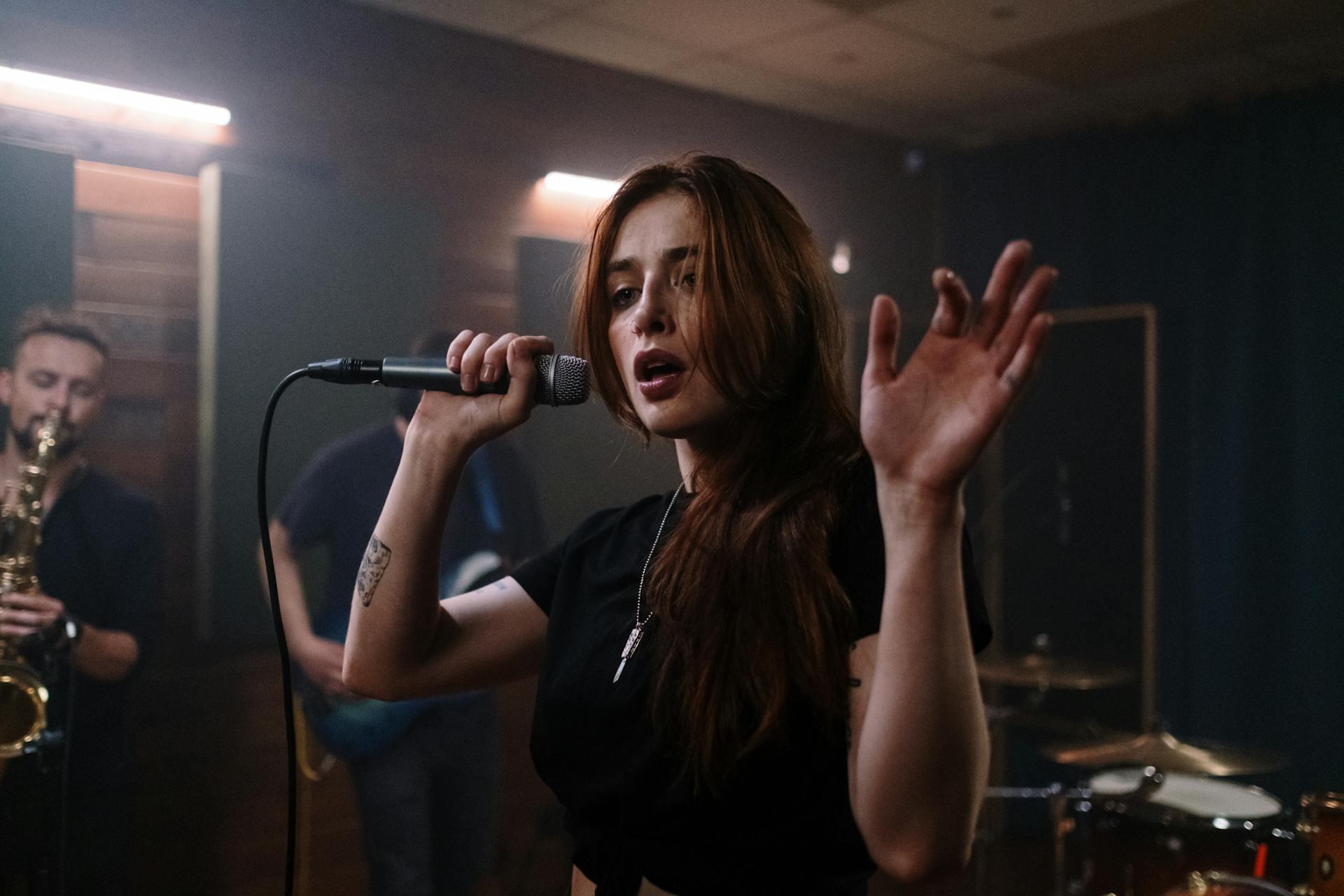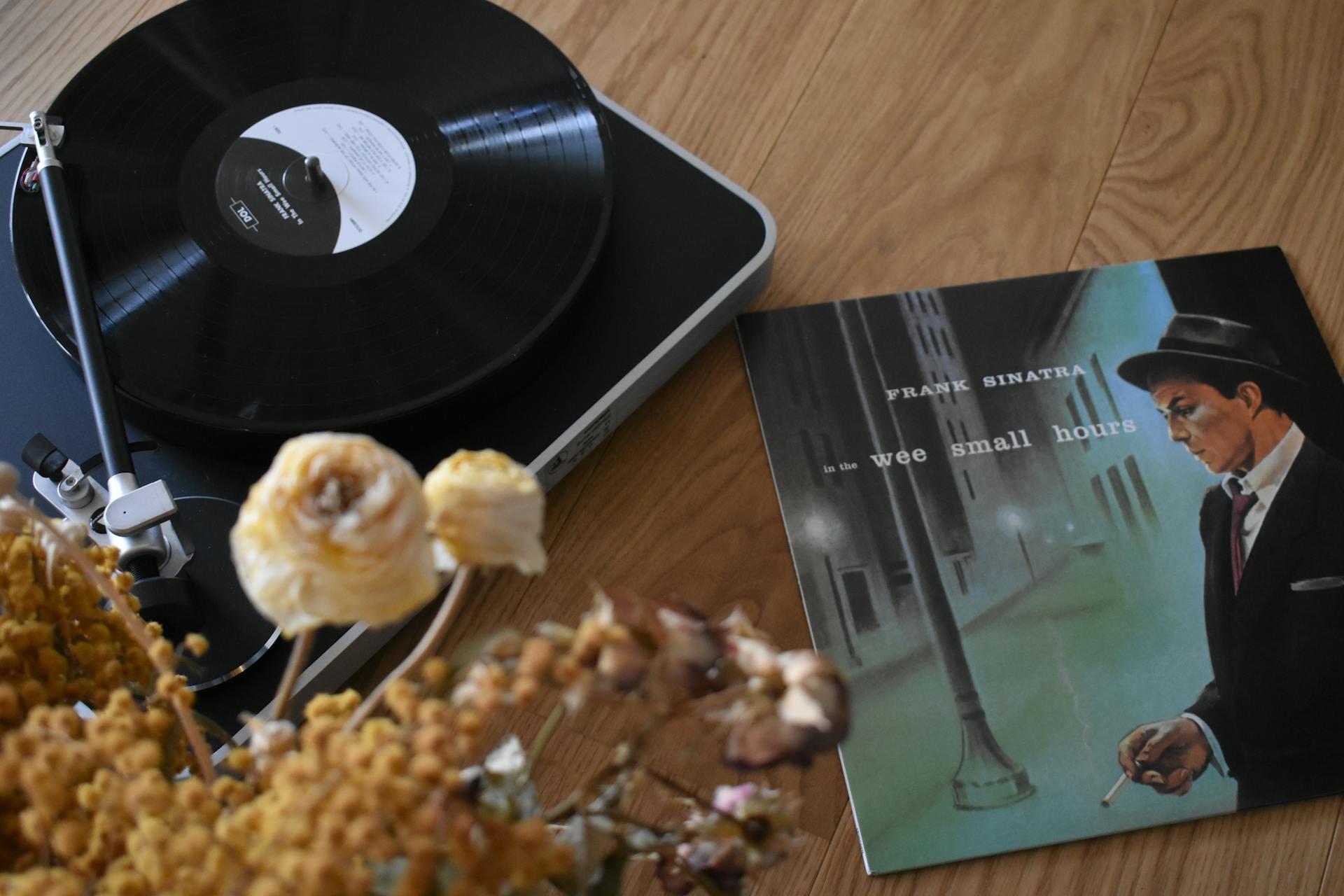Rock music has undergone incredible transformations over the decades, evolving from its blues and jazz roots into a more forceful sound and spidering out into more subgenres than you can count. While there are hundreds of bands that had a hand in rock’s popularity and growth, it’s impossible to note them all down in one short article! Here are 30 of the most influential rock bands from the 1960s to the 2000s.
| Band | Years Active | Genre | Best-Selling Album |
|---|---|---|---|
| The Beatles | 1960–1970 | Rock, Pop Rock, Psychedelic Rock | The Beatles (The White Album) (1968) |
| The Rolling Stones | 1962–present | Rock, Blues Rock | Hot Rocks 1964–1971 (Compilation, 1971) |
| Led Zeppelin | 1968–1980 | Hard Rock, Blues Rock, Heavy Metal | Led Zeppelin IV (1971) |
| Pink Floyd | 1965–1995, 2005, 2012–2014 | Progressive Rock, Psychedelic Rock | The Dark Side of the Moon (1973) |
| Jimi Hendrix Experience | 1966–1970 | Psychedelic Rock, Hard Rock, Blues Rock | Are You Experienced (1967) |
| Black Sabbath | 1968–2006, 2011–2017 | Heavy Metal, Hard Rock | Paranoid (1970) |
| The Who | 1964–1983, 1989, 1996–present | Rock, Hard Rock, Mod Rock | Who's Next (1971) |
| The Eagles | 1971–1980, 1994–2016, 2017–present | Rock, Country Rock, Soft Rock | Their Greatest Hits (1971–1975) (1976) |
| Queen | 1970–1991, 1995–present | Rock, Hard Rock, Progressive Rock | |
| AC/DC | 1973–present | Hard Rock, Heavy Metal | Back in Black (1980) |
| Sex Pistols | 1975–1978, 1996, 2002–2003, 2007–2008 | Punk Rock | Never Mind the Bollocks, Here’s the Sex Pistols (1977) |
| Van Halen | 1972–2020 | Hard Rock, Heavy Metal | 1984 (1984) |
| Metallica | 1981–present | Heavy Metal, Thrash Metal | Metallica (The Black Album) (1991) |
| Guns N' Roses | 1985–present | Hard Rock, Heavy Metal | Appetite for Destruction (1987) |
| Nirvana | 1987–1994 | Grunge, Alternative Rock | Nevermind (1991) |
| Pearl Jam | 1990–present | Grunge, Alternative Rock | Ten (1991) |
| Radiohead | 1985–present | Alternative Rock, Art Rock, Experimental Rock | OK Computer (1997) |
| Foo Fighters | 1994–present | Alternative Rock, Post-Grunge | The Colour and the Shape (1997) |
| Green Day | 1987–present | Punk Rock, Pop Punk, Alternative Rock | Dookie (1994) |
| Linkin Park | 1996–2017, 2020–present | Nu-Metal, Alternative Rock, Rap Rock | Hybrid Theory (2000) |
| The White Stripes | 1997–2011 | Garage Rock, Blues Rock, Alternative Rock | Elephant (2003) |
| The Strokes | 1998–present | Garage Rock, Indie Rock | Is This It (2001) |
| Muse | 1994–present | Alternative Rock, Progressive Rock, Space Rock | Black Holes and Revelations (2006) |
| Arcade Fire | 2001–present | Indie Rock, Art Rock, Baroque Pop | The Suburbs (2010) |
| My Chemical Romance | 2001–2013, 2019–present | Emo, Alternative Rock, Pop Punk | The Black Parade (2006) |
| The Killers | 2001–present | Alternative Rock, Indie Rock, New Wave | Hot Fuss (2004) |
| Coldplay | 1996–present | Alternative Rock, Pop Rock | A Rush of Blood to the Head (2002) |
| Kings of Leon | 1999–present | Alternative Rock, Southern Rock | Only by the Night (2008) |
| U2 | 1976 to present | Rock, Alternative Rock, Post-Punk | The Joshua Tree (1987) |

A Brief History: The Evolution of Rock Music (1960 to 2009)
The “Golden Age of Rock” was the 1970s, so naturally, the majority of the most influential and greatest rock bands of all time come from this era. But, each decade also saw many artists contributing to the genre, expanding its edges and paving the way for future artists to explore new sounds even more.
Over the years, rock expanded into many different subgenres, including, but not limited to:
- Classic Rock
- Hard Rock
- Punk Rock
- Progressive Rock (Prog Rock)
- Alternative Rock (Alt Rock)
- Grunge
- Heavy Metal
- Blues Rock
- Indie Rock
- Psychedelic Rock
- Garage Rock
- Glam Rock
In this article, we're covering some of the most influential artists who both operated within these genres and created opportunities for bands after them to evolve to the next iteration of rock.
1. The Beatles
John Lennon, Paul McCartney, George Harrison, Stuart Sutcliffe, Pete Best, Ringo Starr
Hey Jude (1968), Let It Be (1970), A Day in the Life (1967), Yesterday (1965), Come Together (1969)
Formed in Liverpool in 1960, The Beatles remain the most iconic rock band of all time. With Sgt. Pepper’s Lonely Hearts Club Band (1967), they revolutionized rock music, influencing countless artists for generations. Their self-titled album (known as the White Album) (1968) and Abbey Road (1969) became classics, and "Hey Jude" (1968) remains one of their best-selling songs of all time.
albums since their debut, making them the #1 selling band of all time
2. The Rolling Stones
Mick Jagger, Keith Richards, Brian Jones, Ian Stewart, Bill Wyman, Charlie Watts, Ron Wood, Mick Taylor
Paint It Black (1966), (I Can't Get No) Satisfaction (1965), Gimme Shelter (1969), Sympathy for the Devil (1968), Angie (1973)
Emerging in 1962, The Rolling Stones became the embodiment of classic rock’s rebellious energy. Their Let It Bleed (1969) album set new standards of rock, becoming the epitome of stereotypical rockstars. Their mega hit albums Some Girls (1978) and Exile on Main St. (1972) cemented their legendary status among classic rock bands from the 60s. "(I Can’t Get No) Satisfaction" (1965) became one of rock's best songs and defined the band's gritty blues-rock sound.
3. Led Zeppelin
Robert Plant, Jimmy Page, John Paul Jones, John Bonham
Stairway to Heaven (1971), Whole Lotta Love (1969), Black Dog (1971), Kashmir (1975), Immigrant Song (1970)
Formed in 1968, Led Zeppelin’s fusion of hard rock and blues set them apart in a time when many hard rock bands were vying for top status. Their fourth album, Led Zeppelin IV (1971), featuring "Stairway to Heaven," remains one of the best-selling albums of all time. The uniquely high vocals and crunchy guitar riffs gave them their signature sound.
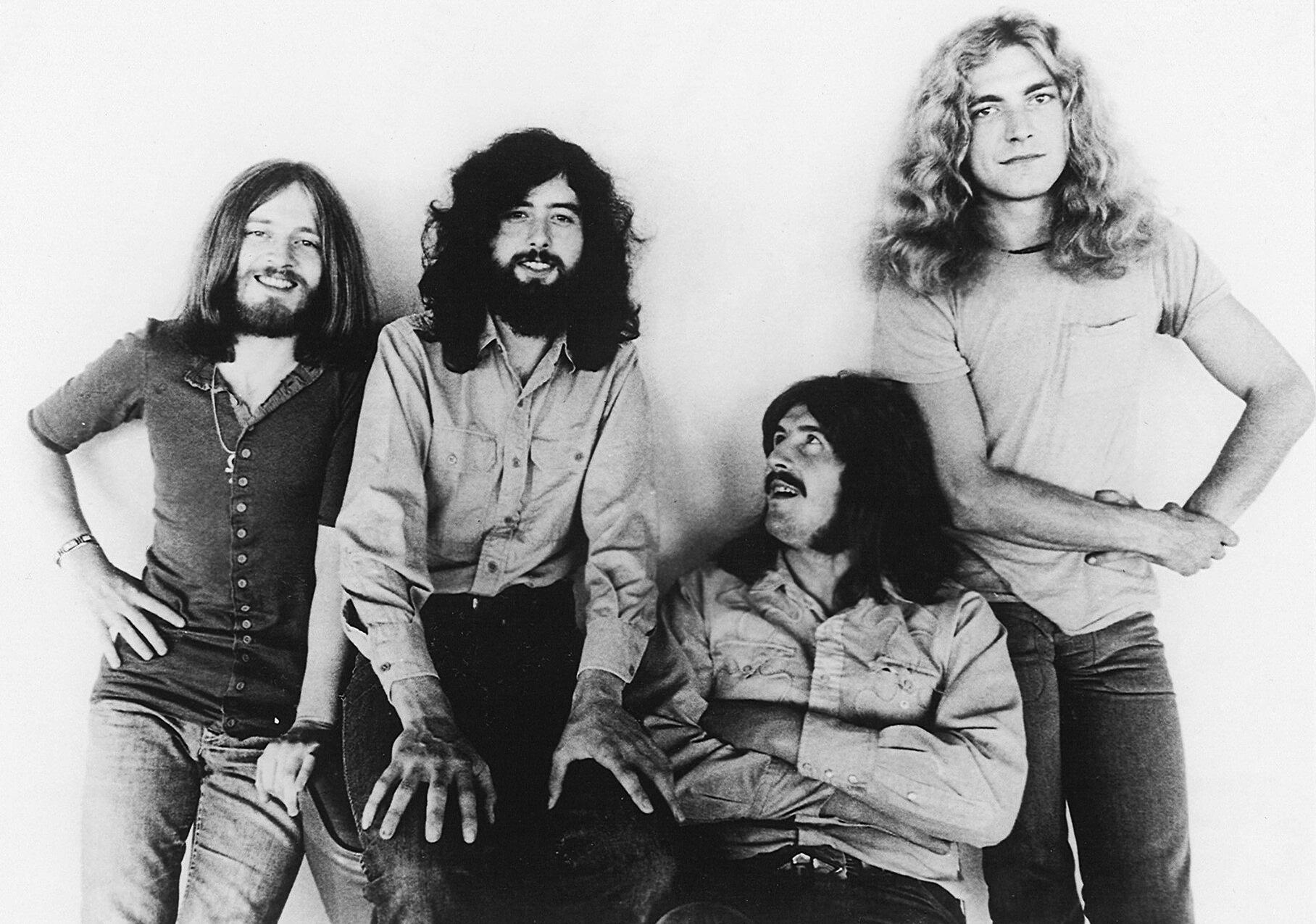
4. Pink Floyd
Syd Barrett, Roger Waters, Richard Wright, Nick Mason, David Gilmour
Comfortably Numb (1979), Wish You Were Here (1975), Time (1973), Money (1973), Another Brick in the Wall, Part 2 (1979)
Pioneers of progressive rock, Pink Floyd formed in 1965 and pushed the limits of music with The Dark Side of the Moon (1973), one of the best-selling albums ever. They pushed rock in a new direction with their progressive and psychedelic tracks, influencing many other 70s rock bands. Their theme-based albums gave listeners a unique, intense, and lengthy audio experience, perfect for fans who liked to partake in the average downtime hobbies of the era.
5. Jimi Hendrix Experience
Jimi Hendrix, Noel Redding, Mitch Mitchell
Purple Haze (1967), All Along the Watchtower (1968), Voodoo Child (Slight Return) (1968), Little Wing (1967), Hey Joe (1966)
Jimi Hendrix, one of the greatest rock guitarists of all time, formed his groundbreaking band in 1966. His album Electric Ladyland (1968) introduced the world to a new level of guitar mastery. Hendrix quickly became known for his savant-level guitar playing combined with tricks like playing behind his back or with his teeth. Songs like "Purple Haze" (1967) and "Voodoo Child (Slight Return)" (1968) showcased Hendrix’s revolutionary impact on rock music.
6. Black Sabbath
Ozzy Osbourne, Tony Iommi, Geezer Butler, Bill Ward, Ronnie James Dio
Paranoid (1970), Iron Man (1970), War Pigs (1970), Children of the Grave (1971), Heaven and Hell (1980)
Combining heavy riffs with underground, occult themes and infamous live performances, Black Sabbath pushed the envelope when it came to rock music and pop culture. Their blasting guitar style with Ozzy’s buzzing vocals served as the perfect musical outlet for rebellious fans. The band’s lyrical topics helped remind people what rock is about: going against the status quo.
7. The Who
Roger Daltrey, Pete Townshend, John Entwistle, Keith Moon, Kenney Jones, Zak Starkey
Baba O’Riley (1971), My Generation (1965), Won’t Get Fooled Again (1971), Behind Blue Eyes (1971), Pinball Wizard (1969)
The Who, formed in 1964, defined rock with Who's Next (1971). Their groundbreaking live performances, filled with exciting bits like guitar smashing and stage diving, set a standard for rock bands to be wild and crazy. Tommy (1969), their first hit album, was monumental for its time by introducing the world to the rock opera, even inspiring a Broadway musical and film.
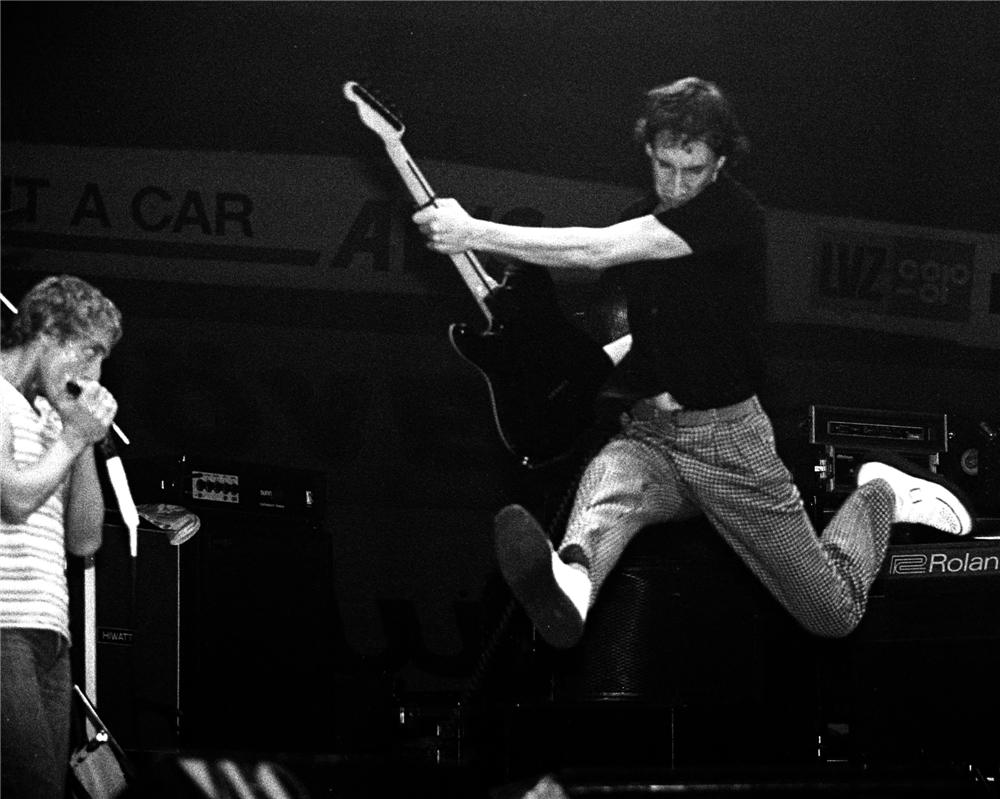
8. The Eagles
Glenn Frey, Don Henley, Bernie Leadon, Randy Meisner, Joe Walsh, Timothy B. Schmit
Hotel California (1976), Take It Easy (1972), Desperado (1973), Lyin’ Eyes (1975), Take It to the Limit (1975)
The Eagles blended rock with country influences, creating a unique alternative sound for their debut era.
Blending rock with country influences, The Eagles formed in 1971 and created timeless hits. Hotel California (1976) became one of rock’s top albums, featuring the iconic title track. Their greatest hits compilation remains among the best-selling albums in music history, a testament to the group’s steady rate of producing hits.
9. Queen
Freddie Mercury, Brian May, Roger Taylor, John Deacon, Paul Rodgers, Adam Lambert
Bohemian Rhapsody (1975), We Will Rock You (1977), Somebody to Love (1976), Another One Bites the Dust (1980), Don't Stop Me Now (1978)
Known for their theatrical style and dynamic sound, Queen formed in 1970 and delivered hits that spanned across multiple rock genres. Their flamboyant performances made them stand out, but the main draw was Mercury’s powerhouse vocals. A Night at the Opera (1975) featured "Bohemian Rhapsody," one of rock’s most unique and enduring songs. Their range also included stadium anthems like "We Will Rock You" (1977), making them one of the best bands of all time.
10. AC/DC
Malcolm Young, Angus Young, Dave Evans, Larry Van Kriedt, Colin Burgess, Bon Scott, Brian Johnson
Highway to Hell (1979), Back in Black (1980), Thunderstruck (1990), You Shook Me All Night Long (1980), T.N.T. (1975)
This Australian powerhouse formed in 1973 and dominated rock music with raw energy. Back in Black (1980) became one of the best-selling albums in rock history, featuring classics like "You Shook Me All Night Long" and the title track. AC/DC’s accessible-yet-awesome rock energy makes them, hands down, one of the best rock bands of all time.
11. Ramones
Joey Ramone, Johnny Ramone, Dee Dee Ramone, Tommy Ramone
Blitzkrieg Bop (1976), I Wanna Be Sedated (1978), Rock ‘n’ Roll High School (1979), Sheena Is a Punk Rocker (1977), Pet Sematary (1989)
The Ramones pioneered punk rock in 1974 with quick-tempo, energetic songs like "Blitzkrieg Bop.” Their sound was more “loud and fast” and less “shredding with righteous guitar” than other rock groups of the era. In short, they helped introduce punk rock to the world, opening up a new avenue for musicians to travel.
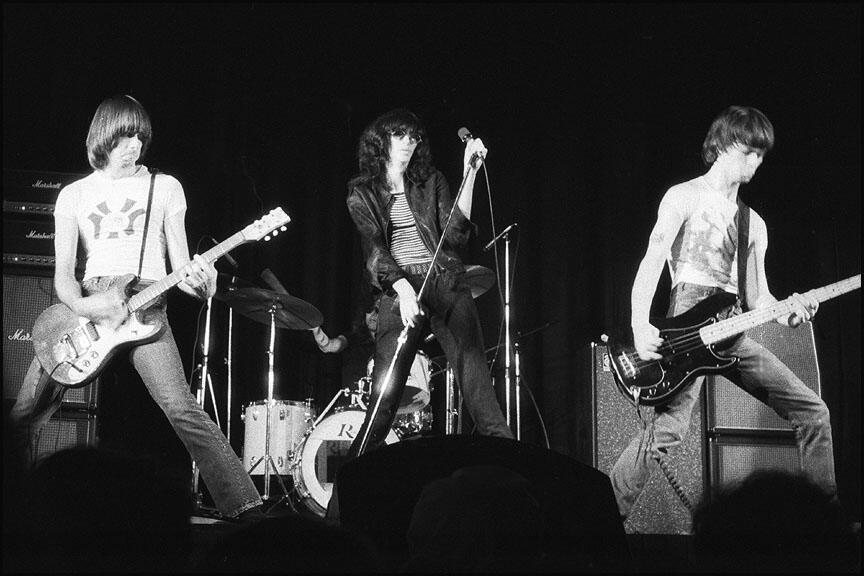
12. Sex Pistols
Johnny Rotten (John Lydon), Steve Jones, Glen Matlock, Paul Cook, Sid Vicious
Anarchy in the U.K. (1976), God Save the Queen (1977), Holidays in the Sun (1977), Pretty Vacant (1977), No Feelings (1977)
The Sex Pistols ignited punk rock’s movement in 1975 with Never Mind the Bollocks (1977). The band’s persona as a whole was designed to be anti-establishment, opening up the floodgates for more rebellious punk bands to thrive. With their provocative attitudes, music, lyrics, and behavior, the band defined the punk rock aesthetic of the 70s.
13. Van Halen
Eddie Van Halen, Alex Van Halen, David Lee Roth, Michael Anthony, Sammy Hagar, Wolfgang Van Halen
Jump (1984), Eruption (1978), Panama (1984), Hot for Teacher (1984), Runnin’ with the Devil (1978)
Van Halen, formed in 1972, revolutionized guitar-driven rock. Van Halen’s unique and skillful technique of two-handed guitar tapping wowed audiences and inspired other musicians to push their limits. The band’s fresh combination of synth and shrieking vocals with hard rock informed the evolution of rock music.
14. Metallica
James Hetfield, Lars Ulrich, Dave Mustaine, Ron McGovney, Kirk Hammett, Cliff Burton, Jason Newsted, Robert Trujillo
Enter Sandman (1991), Master of Puppets (1986), One (1988), Fade to Black (1984), Nothing Else Matters (1991)
Metallica, formed in 1981, brought thrash metal into the mainstream, becoming a staple in 90s rock bands. The Black Album (1991), featuring "Enter Sandman," became their best-selling work. Their aggressive yet melodic approach allowed their heavy metal sound to appeal to a wider audience than one might expect and set the stage for more metal groups to flourish.

15. Guns N’ Roses
Axl Rose, Slash, Izzy Stradlin, Duff McKagan, Steven Adler, Matt Sorum, Dizzy Reed
Sweet Child o’ Mine (1987), Welcome to the Jungle (1987), Paradise City (1987), November Rain (1991), Knockin’ on Heaven’s Door (1991)
Guns N’ Roses quickly took the rock world by storm with their 1987 album Appetite for Destruction. Their signature sound combined hard rock and heavy metal with punk influences, creating the perfect recipe for hyping up fans. In a time where glam rock was more prevalent, this gritty band offered a more exciting and edgy sound. Their hits, such as “Welcome to the Jungle,” continue to be iconic in the social zeitgeist.
16. Nirvana
Kurt Cobain, Krist Novoselic, Aaron Burckhard, Dave Grohl
Smells Like Teen Spirit (1991), Come as You Are (1991), Lithium (1991), Heart-Shaped Box (1993), In Bloom (1991)
Leading the grunge revolution, Nirvana formed in 1987, with Kurt Cobain’s songwriting reshaping rock music. Their album Nevermind (1991) changed rock forever, with "Smells Like Teen Spirit" defining an entire generation. The rawness of their music was a rather novel choice in rock, and the unexpectedly deep and emotional lyrics made them a unique band that captured audiences.
17. Pearl Jam
Eddie Vedder, Mike McCready, Stone Gossard, Jeff Ament, Dave Krusen, Matt Cameron
Alive (1991), Jeremy (1991), Even Flow (1991), Black (1991), Better Man (1994)
Emerging from Seattle’s grunge scene, Pearl Jam formed in 1990 and gained fame with Ten (1991). Their raw, emotional sound was a compliment and a foil to other grunge acts at the time, like Nirvana. The band’s intense and energetic live performances made them a popular act for fans to attend live. Additionally, their buck-the-system attitude regarding politics and industry practices (like their legal battle with Ticketmaster) proves they are the real deal.
18. Radiohead
Thom Yorke, Jonny Greenwood, Colin Greenwood, Ed O'Brien, Philip Selway
Creep (1992), Paranoid Android (1997), Karma Police (1997), No Surprises (1997), Everything in Its Right Place (2000)
Radiohead formed in 1985 and revolutionized rock with OK Computer (1997). Their experimental approach to music influenced countless bands and helped shape the future of rock, especially alt rock. The band’s deep, raw lyricism offered a darker flavor of rock music.
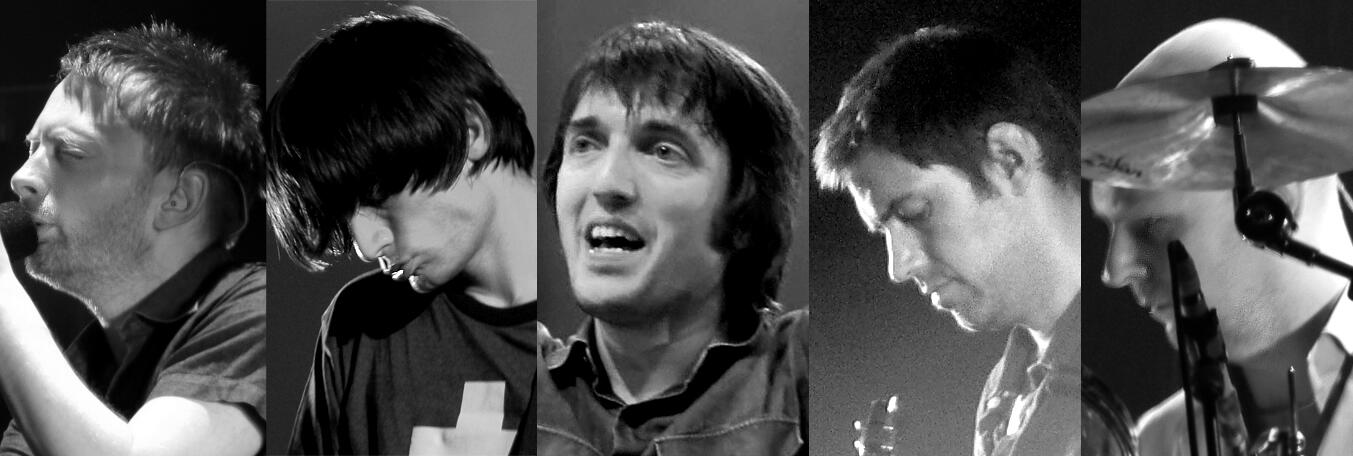
19. Foo Fighters
Dave Grohl, Nate Mendel, Pat Smear, Taylor Hawkins
Everlong (1997), My Hero (1997), Learn to Fly (1999), Best of You (2005), The Pretender (2007)
Founded by Dave Grohl in 1994, Foo Fighters became rock legends with The Colour and the Shape (1997). Their many musical hits kept their name relevant in pop culture, but the band’s work ethic is what made them so loved by fans. Grohl’s persona as a professional with a heart, rather than a tortured artist or troubled musician, made them stand out.
20. Green Day
Billie Joe Armstrong, Mike Dirnt, John Kiffmeyer, Tré Cool
Basket Case (1994), Good Riddance (Time of Your Life) (1997), American Idiot (2004), Wake Me Up When September Ends (2004), Boulevard of Broken Dreams (2004)
Punk rock found a new voice when Green Day formed in 1987. Their breakout Dookie (1994) brought pop-punk to the mainstream, while American Idiot (2004) heightened their legacy. With massive hits like "Boulevard of Broken Dreams," they proved punk rock could be both rebellious and commercially successful. They’ve been making parents angry and inspiring youths to rebel against the status quo since ‘87.
21. Linkin Park
Mike Shinoda, Chester Bennington, Brad Delson, Rob Bourdon, Dave "Phoenix" Farrell, Joe Hahn, Mark Wakefield
In the End (2000), Numb (2003), Crawling (2000), Somewhere I Belong (2003), Breaking the Habit (2003)
Merging rock with hip-hop, Linkin Park formed in 1996 and changed the game with Hybrid Theory (2000), becoming the face of nu-metal. Songs like "In the End" showcased the two main vocalists’ opposite, yet complementary, talents. Fans and critics were enraptured by Bennington’s raw vocal performance. Paired with Shinoda’s clean sound, the two singers brought a level of emotion to the band’s music that other artists could only dream of.
22. The White Stripes
Jack White, Meg White
Seven Nation Army (2003), Fell in Love with a Girl (2001), Icky Thump (2007), Blue Orchid (2005), The Hardest Button to Button (2003)
Jack and Meg White redefined rock with their minimalist approach. Formed in 1997, their album Elephant (2003) gave the world "Seven Nation Army," an iconic cultural cornerstone for any rock fan. Their raw, blues-infused music revived the dying art of garage rock for another generation in the 2000s.
23. The Strokes
Julian Casablancas, Nick Valensi, Albert Hammond Jr., Nikolai Fraiture, Fabrizio Moretti
Last Nite (2001), Someday (2001), Reptilia (2003), Hard to Explain (2001), Juicebox (2005)
A contemporary of The White Stripes, The Strokes also contributed to the resurgence of garage rock. Their effortlessly cool personas made them attractive to fans, many of whom were getting tired of mainstream rock acts. Songs like "Last Nite" defined an era of indie rock.

24. Muse
Matt Bellamy, Chris Wolstenholme, Dominic Howard
Supermassive Black Hole (2006), Uprising (2009), Knights of Cydonia (2006), Starlight (2006), Hysteria (2003)
Formed in 1994, Muse became known for their grandiose rock sound. Albums like Black Holes and Revelations (2006) pushed musical boundaries with their all-encompassing sound. In their career, the band has covered a wide variety of genres and topics, ensuring that rock bands of all sorts can find something to enjoy.
25. Arcade Fire
Win Butler, Régine Chassagne, Richard Reed Parry, Tim Kingsbury, Howard Bilerman, Jeremy Gara, Sarah Neufeld
Wake Up (2004), Rebellion (Lies) (2004), The Suburbs (2010), No Cars Go (2007), Reflektor (2013)
Arcade Fire, formed in 2001 in Montreal, introduced a new genre blend to popular rock music. Their style could be described as orchestral indie rock, filled with melodic and harmonic instrumentals with emotional vocals. Their layered sound and deeply expressive lyrics set them apart, influencing alternative rock’s evolution.
26. My Chemical Romance
Gerard Way, Mikey Way, Ray Toro, Matt Pelissier
Welcome to the Black Parade (2006), Helena (2004), Teenagers (2006), Famous Last Words (2006), I’m Not Okay (I Promise) (2004)
Bringing emo rock to the mainstream, My Chemical Romance formed in 2001 and dominated the mid-2000s with The Black Parade (2006). "Welcome to the Black Parade" became one of the most recognizable songs in rock history. Their theatrical style and emotional intensity created a new breed of rock fan. Musically and culturally, MCR stands out as one of the most influential bands of all time.
27. The Killers
Brandon Flowers, Dave Keuning, Mark Stoermer, Ronnie Vannucci Jr.
Mr. Brightside (2004), Somebody Told Me (2004), When You Were Young (2006), All These Things That I’ve Done (2004), Human (2008)
Formed in Las Vegas in 2001, The Killers gained global recognition with Hot Fuss (2004), featuring hits like "Mr. Brightside." Their many hits garnered attention for their intriguing sound and unique lyrics. The Killers music in their heyday blended several genres, appealing to fans across the spectrum of indie, new wave, and alt rock.
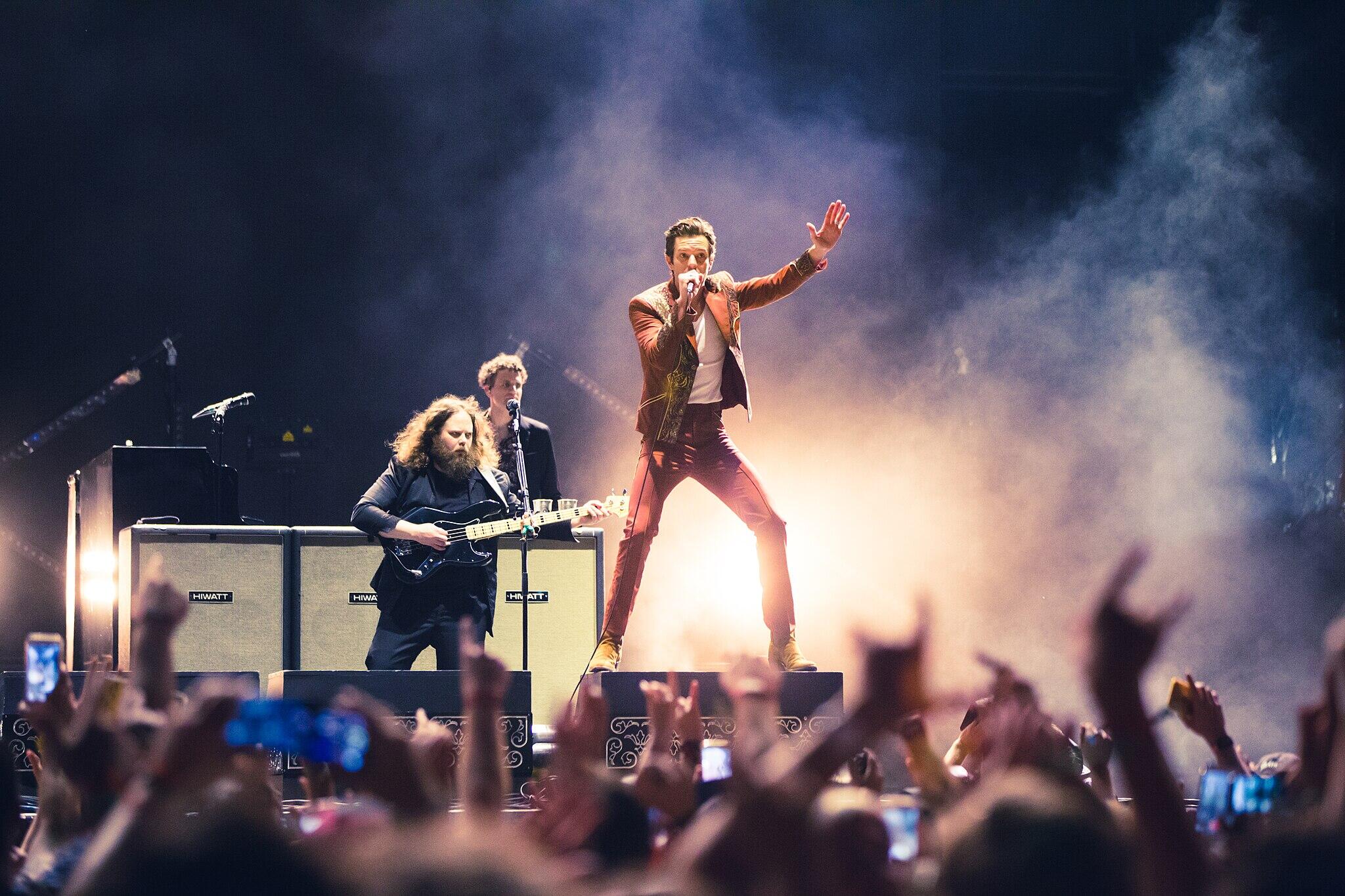
28. Coldplay
Chris Martin, Jonny Buckland, Guy Berryman, Will Champion
Yellow (2000), Clocks (2002), The Scientist (2002), Viva la Vida (2008), Fix You (2005)
Formed in 1996, Coldplay blended rock with atmospheric melodies, gaining worldwide fame with Parachutes (2000). Their sound was unlike that of any other major artist at the time, opening a new door for fans and budding musical groups. While their brand of rock might not appeal to all, it’s undeniable that they have produced some of the most-loved alt rock music in the past 30 years.
29. Kings of Leon
Caleb Followill, Nathan Followill, Jared Followill, Matthew Followill
Sex on Fire (2008), Use Somebody (2008), Closer (2008), Notion (2008), The Bucket (2004)
KOL created an interesting blend of bluesy, Southern influence with garage rock sound. Only by the Night (2008) brought them massive success with "Sex on Fire" and "Use Somebody." Followill’s gravelly voice is reminiscent of hard rock but with a softer, forlorn quality, making their genre-straddling musical style unique among 2000s rock bands.
30. U2
Bono (Paul Hewson), The Edge (David Evans), Adam Clayton, Larry Mullen Jr.
With or Without You (1987), I Still Haven’t Found What I’m Looking For (1987), Where the Streets Have No Name (1987), One (1991), Beautiful Day (2000)
Formed in 1976, U2 blended rock with political activism, creating historic songs and participating in philanthropic causes. The Joshua Tree (1987) propelled them to global fame with hits like "With or Without You." Their ability to reinvent themselves time and time again has kept them at the top of rock music for decades, through the 80s, 90s, and 00s, as both musicians and activists.
Rock music has certainly changed over the years. These bands helped shape the genre through the decades into different, interesting subgenres. We wonder how Rock will evolve in the coming years!
Summarize with AI:

